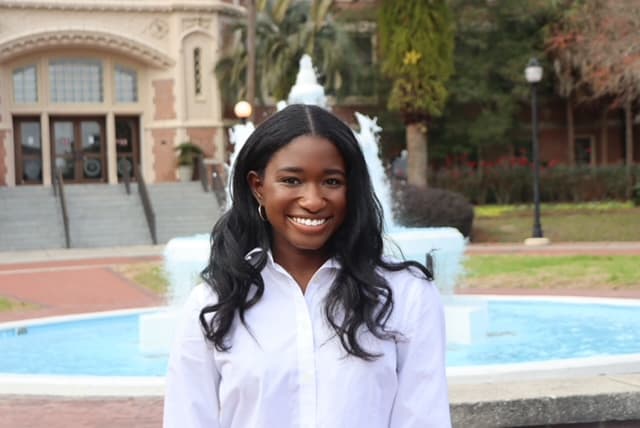Environmental Internships Help Underserved Students

By Krista Pfunder
Underrepresented college students are getting help landing leadership positions in environmental research and management through an innovative program this summer.
The C-StREAM program at the Chesapeake Research Consortium in Edgewater focuses on recruiting, advising and mentoring college students from populations who have been historically excluded from the fields of environmental protection and restoration.
C-StREAM—which stands for Chesapeake Student Recruitment, Early Advisement and Mentoring—works closely with academic institutions and government agencies to place selected students into summer internships and to support them in their academic work.
The primary goal of the consortium is to ensure support for research of coastal issues, from rigorous investigation of water quality on land to the living resources in its aquatic ecosystems.
“To support that goal, the consortium seeks to fill the pipeline of environmental professionals,” says Randy Rowel, C-StREAM program coordinator.
The program focuses on helping students who identify as people of color and/or who are first-generation college students, including students at historically Black colleges and universities.
“The program is open to all underserved students even if they do not attend an HBCU,” Rowel says. “HBCUs play such a critical role within the communities this program is targeting, and we have a lot to learn from them about what makes them so successful in supporting students as they navigate their educational pathways. We hope to continue our relationship building and learning with HBCUs and other minority serving institutions programs so we can apply those lessons learned to our program.”
Interns work on creating databases, assessing management approaches and analyzing networks. They need expertise in both physical and social sciences.
Applications for C-StREAM 2021 are now closed, and intern Abril Hunter — who attends Florida State University—is hard at work, supporting the Chesapeake Bay Program’s diversity workgroup.
“The group works to incorporate equity, inclusion and justice in addition to diversity into the implementation of the Chesapeake Bay Watershed Agreement,” Rowel says. “She is tasked with conducting an inventory of the current job market to establish opportunities for careers in the environmental field and their potential growth and salaries. Abril will present findings to the partnership, funders and others involved in decision-making.”
The consortium is finding that environmental protection and restoration is popular with students—and that reaching the underserved populations is essential to resolving global issues.
“The popularity of these fields is heightened as our nation seeks to collectively address climate change and other global challenges by utilizing science and storytelling to create real behavioral change,” Rowel says. “We will not be able to achieve our goals without directly outreaching and engaging with other ethnicities and communities that generally would not be represented at the table … to solve environmental issues.”
Learn more: https://chesapeake.org/c-stream/.
